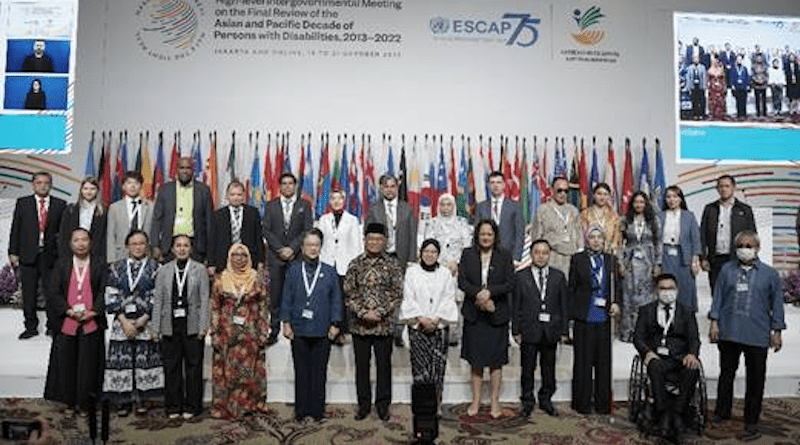Governments Adopt Jakarta Declaration Underscoring Rights-Based Approach To Disability-Inclusive Development In Asia And Pacific
Asian and Pacific countries reaffirmed Friday their commitment to disability-inclusive development, including through advancing meaningful participation of some 700 million persons with disabilities in the region.
The groundbreaking Jakarta Declaration on the Asian and Pacific Decade of Persons with Disabilities, 2023-2032 also features a novel gender-responsive life cycle approach to disability inclusion in the region. It was adopted at the conclusion of a high-level intergovernmental meeting – convened by the United Nations Economic and Social Commission for Asia and the Pacific (ESCAP) and hosted by the Government of Indonesia – to review the progress made in the past 10 years, share good practices and forge consensus on new strategic directions.
Noting the region’s leadership and strong foundation in disability inclusion over the past three decades, United Nations Under-Secretary-General and Executive Secretary of ESCAP Armida Salsiah Alisjahbana called upon governments to further strengthen existing partnerships and cultivate new ones with the private sector, organizations of persons with disabilities and others to create a whole-of-society approach.
“Our policies should be developed and implemented with the full and meaningful participation of persons with disabilities. In fact, this principle should underpin all of our work in disability inclusive development. Let us give new life and meaning to the phrase ‘nothing about us without us,'” said Alisjahbana.
“Our consensus today demonstrates our recognition of the criticality of disability-inclusive development. It also reiterates member States’ commitment to ensuring the meaningful participation of women and men with diverse disabilities in order to leave no one behind in the achievement of the 2030 Agenda for Sustainable Development,” said Tri Rismaharini, the Minister of Social Affairs of Indonesia, closing the session.
Despite policy advances in the region, however, persons with disabilities continue to face significant barriers in society – often faring worse in the labour market, being less likely to receive education and remaining underrepresented in political processes compared to their peers without disabilities.
The three-day meeting saw Ministers, officials and stakeholder group representatives from 41 countries delve into innovative strategies for the region to remove such barriers while responding to emerging challenges, such as population ageing, digital transformation and climate change.
Several key priorities for the region were also explored such as enhancing disability-specific social protection schemes, strengthening decent work and entrepreneurship opportunities, providing inclusive education for all learners with disabilities, ensuring disability inclusive disaster risk reduction and resilience measures, and improving the reliability of disability-disaggregated data.
As of June 2021, 47 of the 53 ESCAP member States had ratified or acceded to the Convention on the Rights of Persons with Disabilities. The Jakarta Declaration aims to further implementation of the Incheon Strategy – the world’s first set of disability-specific regional development goals adopted in 2012.

